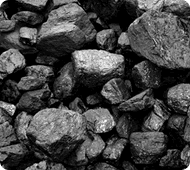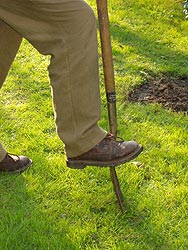Carbon Offsetting - Global Warming
Carbon Offsetting - Is it a realistic Proposition?
What is "Carbon Offsetting"
 Almost
anything you do involving transportation, or other energy use
such as heating, cooling, lighting, manufacture of almost any
kind of goods (that is by your buying them, not making them
yourself) results in the production of carbon dioxide
into the atmosphere. This is by the burning of a fossil fuel
- gas, oil or coal to release the energy (often to generate
electricity).
Almost
anything you do involving transportation, or other energy use
such as heating, cooling, lighting, manufacture of almost any
kind of goods (that is by your buying them, not making them
yourself) results in the production of carbon dioxide
into the atmosphere. This is by the burning of a fossil fuel
- gas, oil or coal to release the energy (often to generate
electricity).So carbon (in the form of carbon dioxide) is put into the atmosphere that wouldn't have been there if you hadn't travelled, heated, refrigerated or did whatever it was you did.
The idea behind carbon offsetting is that you then do something to remove the equivalent amount of carbon from the atmosphere so making whatever it was that you did "carbon neutral" - as if it had never happened in the first place.
This is usually achieved by paying a company a fee based on the amount of carbon dioxide you have released or caused to be released.
Does carbon offsetting it work?
No - not in the manner that is often assumed.
 Now
that may be a controversial answer! So let me explain a little
more...
Now
that may be a controversial answer! So let me explain a little
more...
The problem of global warming is due to there being too much carbon dioxide in the atmosphere. This carbon dioxide has largely come from the burning of fossil fuels starting with the industrial revolution about 150 years ago. This carbon was safely locked up in a "carbon sink" (mainly coal and oil) but was released back into the atmosphere.
The only way therefore that any act of releasing carbon dioxide can be fully "neutralised" is by locking that carbon equivalent up again in another carbon sink, not to be released again. None of the ways of carbon-offsetting yet devised do that.
Perhaps the greatest criticism of carbon offsetting is that it lulls people, individuals and businesses, into a false sense of security in thinking that they can carry on acting exactly as they always have and as long as they pay some money, it's all made better, when in reality it isn't.
In particular, it may be often be cheaper to purchase offsets than to eliminate or reduce emissions, so big polluters just carry on as usual while paying some conscience-money. It may even encourage people to make unnecessary journeys that otherwise they wouldn't consider.
Some companies have been accused of causing damage in the developing world while making no difference to curbing climate change.
Doesn't it even work a little bit?
Yes, it does do good as things happen that would otherwise not have happened and those things are positive in terms of global warming.
It is claimed that carbon offsetting schemes help to raise awareness and reduce the impact of carbon emitting actions.
Carbon offsetting is not the end-solution to global warming however.
What are the schemes that "offset" the carbon dioxide I produce?
| Method | What Happens | How does it work? | Notes / Criticisms |
| Tree planting - reforestation |
Trees are planted on your behalf somewhere in the
world. The idea is that the trees act as a "carbon sink", so locking away carbon dioxide as they grow. You may be able to choose in which country the trees are planted. |
The trees take up carbon dioxide as they grow. The scheme may also provide jobs in developing countries. |
To be a real solution, the forests created would
need to be there untouched forever. Can cause more harm than good in Northern countries. Inappropriate species can (and have been) planted leading to un-natural low biodiversity woodland and forests. |
| Renewable Energy Investment |
The money you pay is used to sponsor renewable energy
projects that are frequently in developing countries. Wind energy or energy from otherwise unused biomass is brought into use for instance. |
Many sources of renewable energy are currently more
expensive than burning fossil fuels. Investment
in renewable energy encourages their use against
the financial incentive not to do so. The scheme prevents an amount of carbon dioxide being produced equal to what you were responsible for. |
Nothing happens about the carbon dioxide you emitted,
it is still in the atmosphere. Investment can lead to technology and uses that continue to be effective potentially indefinitely, so the benefits can really be long-term. |
| Promoting Energy Efficiency | Energy efficient schemes are sponsored, these are generally either lighting schemes where energy efficient light-bulbs are given to (usually) a developing community, or energy efficient wood-burning stoves are provided or subsidized for developing countries. |
Energy efficient light bulbs release less carbon
dioxide from the fossil fuels that are used to produce
the electricity. Fuel efficient stoves use less wood than the traditional open fire, so releasing less carbon dioxide. The same number of trees can now support a greater number of cooking fires. Wood is a renewable fuel and so is sustainable in a way that fossil fuels aren't. |
More efficient light bulbs reduce the further production of carbon dioxide (which is still produced) rather than deal with any already produced. Smoky traditional open wood fires cause illnesses for many millions of people. More efficient fires reduce this problem. More efficient wood stoves lead to better usage of renewable natural resources - trees that provide fuel. |
So is it worth doing?
If carried out correctly - these methods are "worth doing" - but NOT for the purpose of ameliorating the effects of profligate carbon dioxide production - they are NOT a cure.You should also be aware than carbon offsetting schemes are always someone's business idea, and this aspect can sometimes be more important to them than any aspect of "Saving the Planet".
Tree planting - reforestation
 Of
these methods, rather surprisingly, reforestation is the most
controversial. It is the one that seems the easiest, straightforward
and should be the most effective, but it is also one that
can be carried out in such a way as to actually be harmful rather
than useful.
Of
these methods, rather surprisingly, reforestation is the most
controversial. It is the one that seems the easiest, straightforward
and should be the most effective, but it is also one that
can be carried out in such a way as to actually be harmful rather
than useful.
Deforestation has been a feature of human civilizations right from the earliest days when we first realised there were benefits from cutting down trees - wood to use as fuel, as a building material and for a million and one other uses. Open land rather than forest was good for hunting some animals and then later on it was a way of getting more land for farming.
Planting trees is a good and useful thing to do almost anywhere in the world. It helps stop soil erosion, has an effect on climate stabilization on a local and global scale, provides wood for fuel and building and a habitat for wildlife.
Appropriate tree planting is always a good thing
All too often though, the trees that are planted are a monoculture - just one kind of tree - over a large area. Even worse, sometimes these are fast-growing non-native trees and the result is a "green desert" that can actually degrade the soil.
To be useful, trees planted would have to be maintained in perpetuity (forever), if they were felled and used at any time, the carbon dioxide they have sequestered would simply be released back into the atmosphere and it may as well never have happened in the first place. In the worst cases, tree planting carbon-offset schemes are just ways of getting some subsidized forestry planting for future use, they can be a way of getting someone else to pay to plant trees that would have been planted anyway.
The wood from these trees could be used for various purposes such as building, tools, furniture etc. in which case more carbon would remain locked away as long as the use was continued. Eventually however it would rot and the carbon be returned to the atmosphere.
Renewable Energy
Helping to fund these schemes will not deal with any carbon dioxide you have already emitted. Instead of both of us p**sing in the well, I do it anyway and pay you not to.
However, it can be of increasing value for the future as such schemes can potentially last indefinitely and they result in NO further carbon dioxide being emitted over what is sustainable (such as biomass energy where the emitted carbon dioxide is used by the next crop).
The thing with a lot of this stuff is that we just don't really know where it's all going and investing in renewable energy is the place where it can possibly make the biggest difference in the longer term.
Energy Efficiency
Doesn't result in any reduction of carbon dioxide, but helps other people (in developing countries) to act to reduce their carbon dioxide output. Energy efficient light bulbs are cheaper in the long run however and so are efficient wood burning stoves, so it's more to do with poverty than global warming.
It's not going to stop global warming and is currently as unsustainable as a long term approach.
However it is like the rabbit-caught-in-the-headlights being able to slow the car down so it has longer to deal with the time when it's really close when it may have thought about getting out of the way or otherwise avoid what was previously inevitable.
